
The anemones, with their egg-white petals and yolk-yellow middles, are still in full bloom in Andy Nwannem’s garden on the first of October. They distract us from looking too closely at her tomato plants that she’s asked us not to photograph (they’re dying). It’s early in the morning, when she’s supposed to be working her day job as a project manager in brand development, but instead we’re there to talk about her writing practice and her writing space. Andy is behind the beautiful newsletter
—which she loosely defines as “part diary, part scrapbook, part escape plan, and part love letter to the world.” One of her recent entries is about pessimism and the underbelly of good things and also the intense feelings that jazz music embodies.Living permanently in Portland the last two and a half years, Andy is learning how to stay still. But there’s still a part of her that she thinks will always want to wander, seeking anonymity and newness and mostly avoiding feeling stuck. After growing up in New Orleans, she left for Lisbon in 2015, marking her first stint abroad. Next was Oaxaca, Mexico City, and eventually Chiapas in a rural and disconnected town where she has lived off and on since 2020. Her and her wife are back there now, tending to their apartment and finding a long-term renter.
As a writer, her studio isn’t a room necessarily but anywhere she can write. Another country, a coffee shop, her couch, her bed. Although the sofa in her bedroom she calls her “punishment couch” because it’s not very comfortable. Usually she writes in her living room, where a wall of wood built-in bookshelves are full of character. Magazines and books and records and pictures and collectibles. “I am a very tangible person, which I know goes directly against being a person who likes to wander,” Andy says. “I started collecting little mementos of all of the places that I’ve been to as a way to remember in a way that I can touch and feel and not scroll through on my phone.” During our visit, we talk about building a home, the influence of place on her writing, her fears around sameness and stagnation, and the evolution of her newsletter.
Where did your writing journey begin?
After Hurricane Katrina I started heavily journaling. I was only 11. I have an old journal from when I was in the car during evacuation and writing about my feelings. Most of the entries were like, “Oh my god, this always happens but at least we get to have a vacation for four days” and “I’m excited to go to the pool.” That type of thing. When we came back to New Orleans and had to clean up after the storm, I found a box of my mom’s old letters and writings in the attic of my grandmother’s house. I spent a lot of time going through that. I had never known that my mom was a writer. Coming across that sparked something in me to take it seriously. In high school, I took creative writing. It’s funny because I ended up having the same creative writing teacher that my mom had in high school. My mom went to a Catholic high school and her teacher was a nun, but by the time she was my teacher, she was a lesbian who had left the church.
I was on the staff for my high school’s literary magazine. I went to college for journalism, but my journalism teacher told me during my first semester that she strongly suggested that I switch majors because I would be a terrible journalist. She was like, you have too many feelings, you can’t be unbiased in your writing. My feelings were hurt obviously back then, and I didn’t end up graduating for other reasons. When I started traveling, I wanted to be a travel blogger. I never really enjoyed it because I was always doing it with the intention of getting press trips. So eventually, I stopped and started
in 2022.What is anywhere else about? How has it changed shapes?
The original intention behind anywhere else was to write about my travels but from a more journalistic lens and less listicle. But then I just didn’t like writing about traveling. It felt very showy and pompous to me, and I couldn’t figure out a way to write about it that didn’t feel that way. I got to the point where I was so heavily focused on writing to match this theme that I wasn’t writing at all. There’s this rhetoric [on Substack] around niching down. But it just ended up with me waiting for something to happen. Eventually I decided the title is just a title. But because I am who I am, I was like, we can find a way to make this title apply in a broader sense. What I’ve been telling myself is anywhere else is any how else, any who else. It’s how I would rather things be—still rooted in this world, but allowing myself to imagine a world beyond this one.

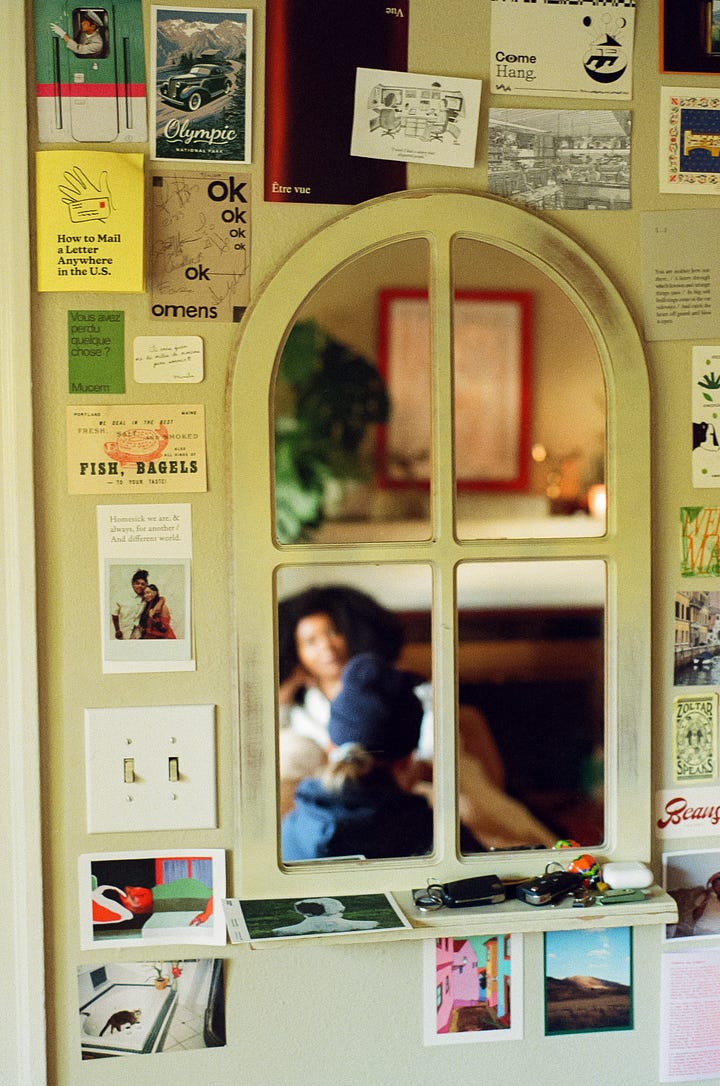
When you were writing about those places you would’ve rather been, what did that provide for you?
I have a fear of being stuck. For a long time, I feared that my lack of education in the traditional sense would force me to be stuck geographically. Before I started working remotely, I worked as a receptionist at a doctor’s office and theater company and all these different places, and I would spend my days planning trips that at that time were very unrealistic for me to ever take. It gave me an outlet to not feel stuck and to remember that there was possibility, that there was a whole world out there beyond the office I was stuck in at the time. It’s different from reading somebody else’s work or even watching a movie because there’s a level for envy in seeing other people live a life that I could not live. When that life was just my imagination or my dreams, there was nobody to envy because it was just me.
And now you’ve lived in the same place for more than two years. Something must have changed within you.
I still have a very strong fear of being stuck. I’ve grown to love Portland in a real way. But when we moved here, I was very sad and depressed about having to be back in the states full time. This giant house, although it’s beautiful, is too big for the two of us. I just felt like I was following this American Dream path of, now I have the house and we have a dog and holy shit now I’m stuck here. I do still grapple with those feelings of stuck-ness, but because I was fortunate to explore so much in my 20s, I know that I can always go back to it if I need to. On the flip side, there’s also something to be said for having a proper home and rooting yourself. I think I kind of attached my identity for a long time to running and not staying still. It’s not until recently that I’ve actually taken the time to sit and consider that maybe sitting still doesn’t have to be a curse.
When do you find time to write? Do you have a cadence?
My promise to myself this year was to publish a piece once a week no matter what. For the most part, I’ve stuck to that. But obviously life happens. I have gotten into the habit of carving out time whenever I can to write. I am a homebody so I have a lot of time in the house. Weekends, I spend a lot of time writing. I feel like I need to force myself to leave the house sometimes so I’ll write at a coffee shop or in the park. I don’t have a consistent writing schedule. I just try to make sure it does happen every week. If I have a day where I don’t have any work calls, which is very rare, then I’ll spend some time writing that day. I like to go to bed early, so I try not to write at night, but sometimes that’s that only time I can find. Early mornings, before the world wakes up, have always been a good time for me. I got into the habit of doing morning pages a couple years ago, so it’s a natural segue into my personal writing when I’m already in that headspace.
How does location impact your writing? As a homebody, I’m guessing there’s a settling and resettling that happens when you travel.
Traveling invigorates me. I end up writing a lot more when I travel because everything is new. It’s less of a struggle to find a topic or be inspired. I’m not walking down Alberta and seeing the same things—not that I don’t love the places on Alberta. Traveling to countries where other languages are spoken, there’s a lot of room for imagination and inferring what’s happening in these little pockets of people around you. I speak Spanish, but I’m slow to understand. A lot of storytelling and world building goes on in my head when I’m in places that I’m unfamiliar with. I’m very comforted by anonymity and that translates into my writing.
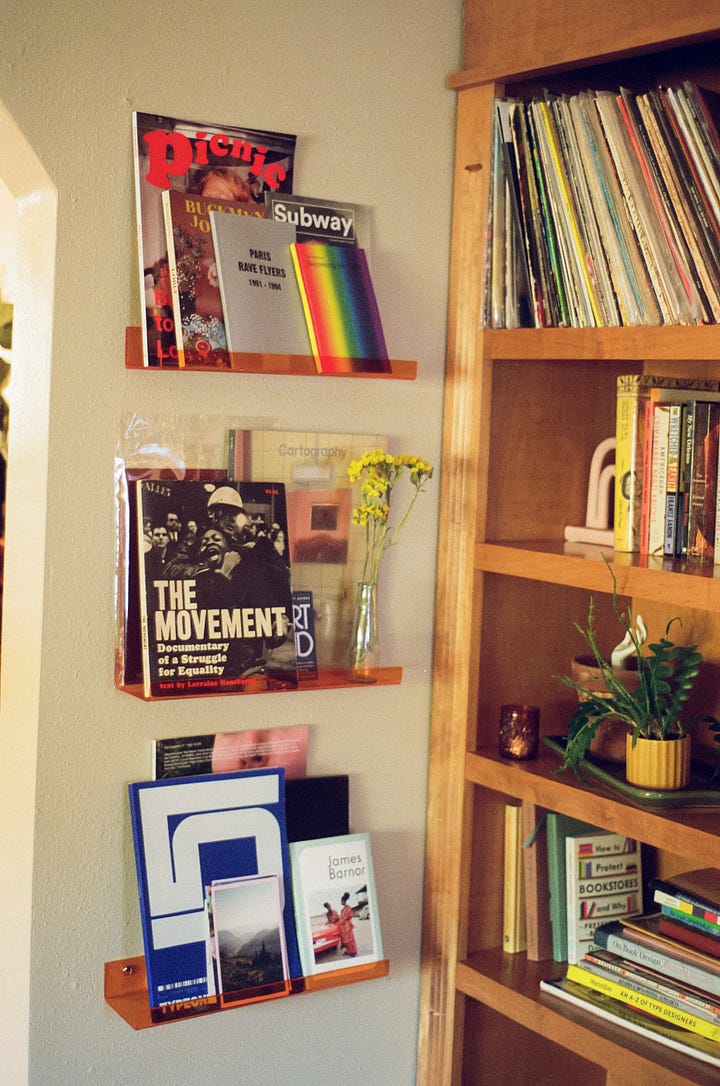
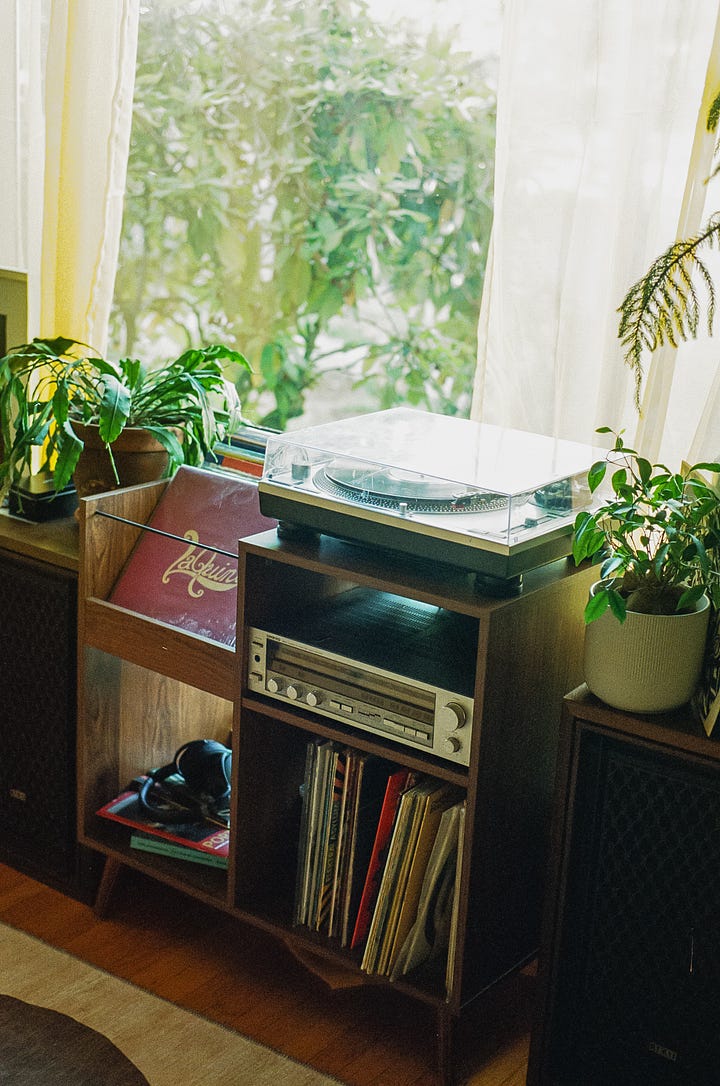
Fun fact about your wife: “We got married in a grocery store in Nashville in December 2022.”
Reading right now: “Hombrecito is a queer coming-of-age story. And this one, The Places That Scare You: A Guide to Fearlessness in Difficult Times, is about Buddhist practices.”
Go-to writing tool: “I don’t physically write. It’s all digital. I write letters to my friends and my morning pages journal, but that’s the extent of my physical writing.”
Favorite Portland restaurant: “L’Orange.”
Writing spot in the city: “Great North on Alberta.”
Currently in the record player: “We just got back from Detroit and did a big record haul there. This one is gospel. I’m not Christian, but I like this cover so we bought it. My partner is Nigerian so that’s all of this music.”
Favorite thing about fall: “I like sweaters and I like soup. My favorite is a corn and crab bisque.”

I can’t stop thinking about what your journalism professor said. How have you healed that hurt and reframed your approach to writing? Because those comments can leave deep wounds!
It bothered me for a long time, especially because I wasn’t able to graduate. Those two things paired together made me feel like a failure, even though they were not related. I couldn’t go back to school because I couldn’t get a loan. It was just monetary. But in my head I was like, maybe if I was a good journalist then I could get a journalism scholarship. Over time I started to feel like she was right, not in a defeated way, but I don’t think I would’ve enjoyed being a journalist actually. I was 18. I don’t think she should have delivered it in that way. But I think the sentiment behind what she was saying was really useful in that I am not really able to detach myself from the things I write about. Now I’m very comfortable in that. It took years for me to come to that conclusion. It’s different to come to a conclusion on your own versus somebody telling you what you’re capable of.
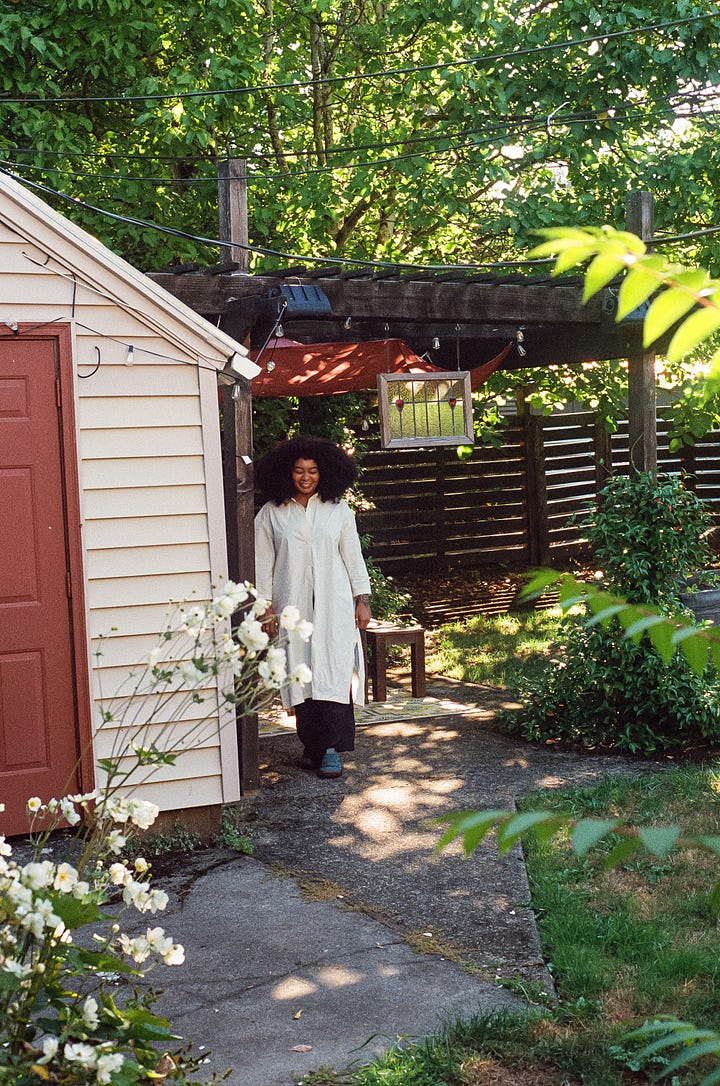
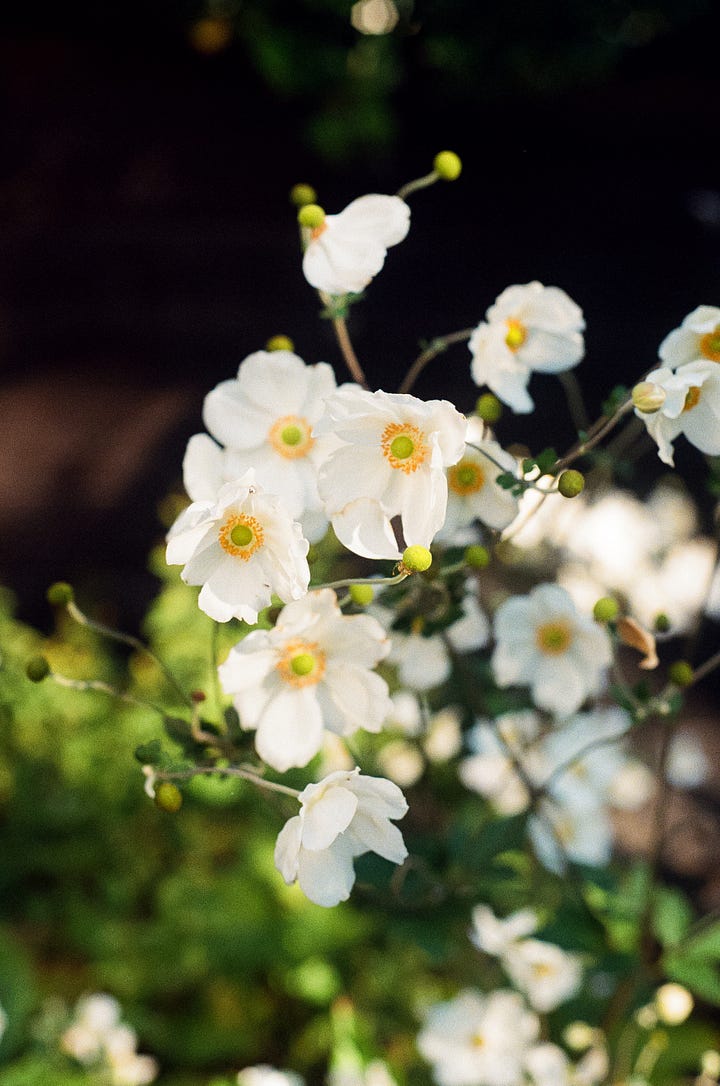
Amelia Arvesen (she/her) is the creator of Honing Her Craft and a freelance journalist who integrates her artistic side into her every day. The STUDIO VISITS series merges her curiosity as an interviewer with her admiration of creative practices and people.
Lauren Beane (she/her) is a freelance photographer specializing in film. She values a life centered around art, nature, community, and little pleasures. This series allows her to expand her definition of what it means to live a creative, artful life while providing others a window to do the same.
You can find previous editions of STUDIO VISITS here. Support this series by liking it, forwarding it, or upgrading to a paid subscription.




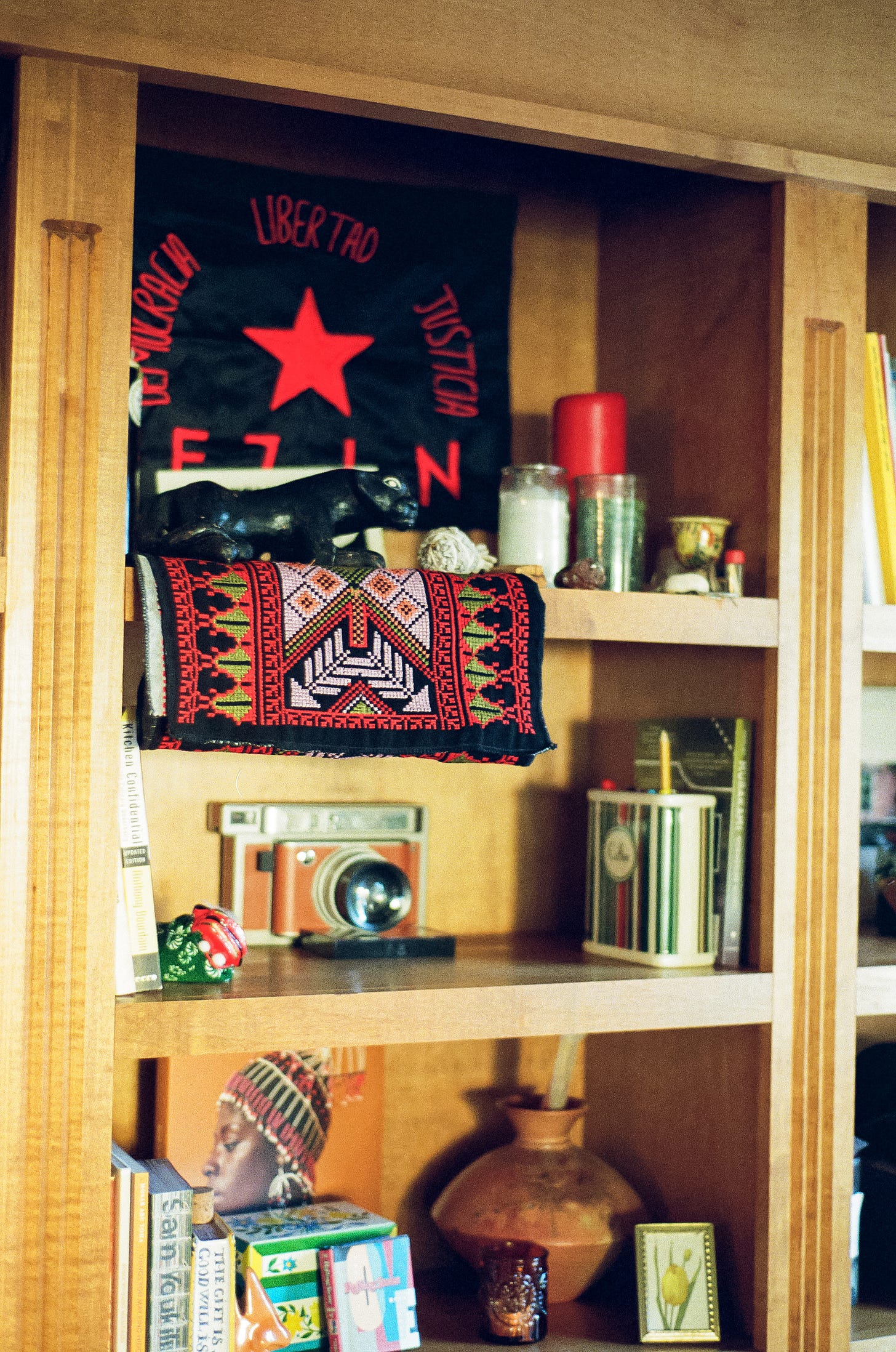
Thank you again for such a lovely conversation, Amelia! Also can I steal "Writing about feelings, places, and feelings about places" for my bio? So good.